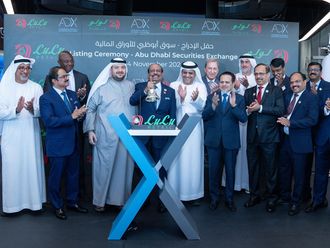News that Kuwait plans to invest $27 billion (Dh99.1 billion) to upgrade its oil and gas sectors comes as a welcome development.
The plan calls for the use of the latest technology to enhance oil output and tap gas potential.
This certainly is a sizable amount when compared to total budgetary spending of $63.5 billion in the 2008-09 fiscal year. Kuwait's fiscal year runs from April to March.
Kuwait's oil output of 2.78 million barrels per day, accounting for merely 3.5 per cent of global oil production, is not commensurate with its oil reserves.
According to BP Statistical Review of World Energy June 2009, Kuwait holds 8.1 per cent of proven global oil reserves.
In contrast, Saudi Arabia accounts for 21 per cent of proven oil reserves in the world. Yet the kingdom accounts for 13 per cent of global output, in turn leading the world in terms of output and exports.
With regard to gas, Kuwait can build on Qatar's experience. In fact, Qatar leads the world in the production of liquefied natural gas (LNG) as it produces 54 million tonnes a year.
Still, LNG output is scheduled to reach 77 million tonnes in 2012 — thanks to the efforts of international energy firms.
However, it is hoped that the development of Kuwait's energy sector will revise the prospects of the repeatedly delayed Kuwait Project. The ambitious scheme targets an additional 450,000 barrels a day from four fields located in the northern and western parts of the country.
The development requires investment in excess of $8 billion over a 20-year period.
Yet successive Kuwaiti parliaments have blocked the project on the grounds that a clause within the constitution bars foreign ownership of hydrocarbon resources.
Still, Kuwaiti legislators cannot overlook the fact that international oil firms tend to have the know-how required to expand oil and gas output, as witnessed in Qatar's case.
Negative side
On the negative side, the expansion of the petroleum sector would place Kuwait further at the mercy of current developments affecting oil markets.
Already, oil revenues account for nearly 90 per cent of treasury income.
Of all Gulf Cooperation Council (GCC) countries, Kuwait is the most dependent on oil with regard to treasury income. In contrast, oil accounts for 75 per cent of Bahrain's total budgetary income.
As a possible and positive spillover effect, the revival of the petroleum sector would pave the way for the speeding up of other aspects of economic reform, notably the privatisation programme.
The scheme includes the disposal of shares in banks, insurance companies and light industrial companies that the government had purchased through the Kuwait Investment Authority following the collapse of the unofficial stock market in 1982 and Iraqi's invasion in 1990.
Authorities also plan to privatise certain activities of Kuwait Petroleum Corporation, besides buses operated by the Kuwait Public Transport Company.
Other activities include postal services and ground communication stations as well as X-ray laboratories and security services at public hospitals.
Authorities managed to privatise petrol stations earlier on — something widely regarded as a successful experiment.
The expansion of crude output should provide Kuwait with an opportunity to generate maximum revenues when the opportunity arises.
For instance, oil prices reached a record $147 per barrel in July 2008. A developed gas industry would also bring Kuwait in line with similar growth elsewhere in the region.
Privatisation should also help broaden revenue sources and thus reduce Kuwait's reliance on oil.
According to figures compiled by Trowers & Hamils, an international law firm, Kuwait plans to spend some $166 billion over the next five years — undoubtedly a sizable amount.
The writer is a Member of Parliament in Bahrain












